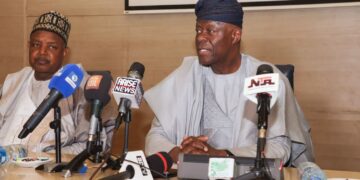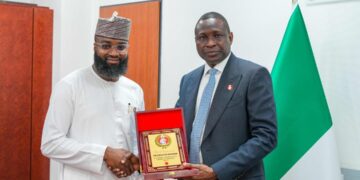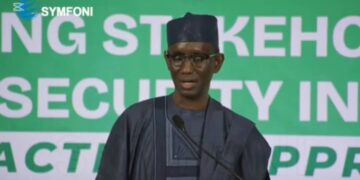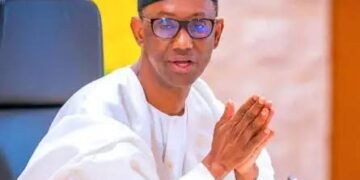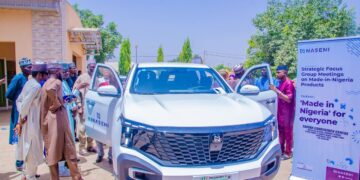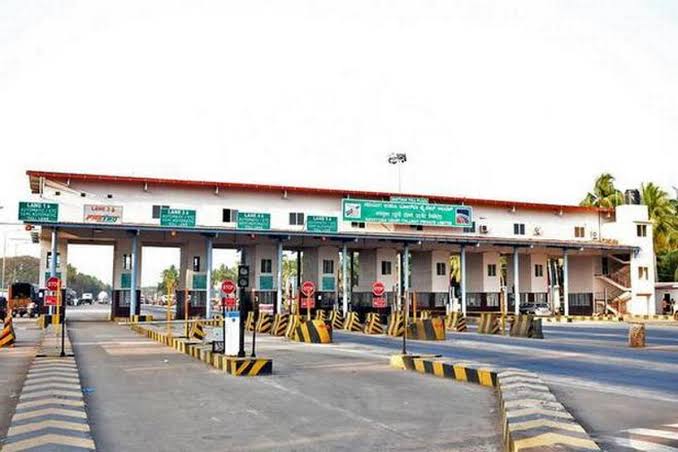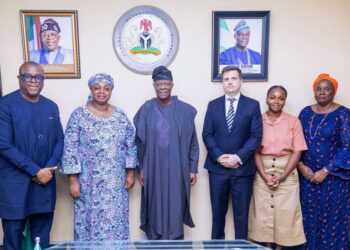By Musa Ilallah
To further actualise his vision for a united, secure, prosperous and economically buoyant country, President Muhammadu Buhari has consciously and consistently tailored his policies and programmes towards achieving this goal within his term in office.
As a goal getter, PMB had in his first term in office done the needful by a rare action of completing projects abandoned by the previous government in power.
Such key and strategic projects include the Abuja-Kaduna rail line, Lagos-Ibadan expressway, the second Niger Bridge.
Other key projects that his government has initiated and embarked upon or are about to start are East-West road and Ibadan-Kaduna Kano rail line among others.
To further open up the country to the outside world in terms of trade and attracting Foreign Direct Investments, FDI, the PMB administration had concluded arrangements to link Nigeria through Kano to Niger republic and other parts of the world by awarding a contract to build a state of the art rail line from Kano- Maradi, Niger rail line project. It is expected to cost the country $1.96 billion which will be sourced from external borrowings.
The project when completed will grow Nigeria’s economy and create employment opportunities for Nigerians and make it easy for Nigerians to be able to transport cargo, not just from Niger Republic and vice versa but from neighboring states.
Not bothered or distracted by the wailings of mischief makers who see it as a waste of resources on the Kano-Maradi rail line, President Buhari has just recorded another milestone in his amazing idea of how to further improve the country’s economy by taking a facility from the African Development Bank, AfDB in conjunction with the Cameroonian government. The memorandum of understanding for the facility was signed 6 years ago to construct the Enugu-Bamenda, Cameroon Road Project linking the two countries.
The project will pave the way for regional integration and greater social cohesion in addition to its considerable multi faceted socio-economic dimension benefits.
The project, due for completion this year, is expected to cost $423 million, of which the Bank provided a $288 million loan and a grant of $25 million. The balance was financed by the World Bank, Japan International Cooperation Agency, JICA, Government of Nigeria, Government of Cameroon and Economic Community of West African States, ECOWAS.
The Enugu-Bamenda Highway is part of Trans-African Highway, which was conceived over 30 years ago as a transcontinental link from Lagos to Mombasa.
Today, the highway stretches 6,300 km traversing Nigeria, Cameroon, Central African Republic, Democratic Republic of Congo, Uganda and Kenya. The Trans-African Highway Authority that was established in the 1980s by the six member states could not achieve its mandate to fully develop the highway due to lack of adequate resources and political will. Cameroon and Nigeria signed an MoU in 2007 and sought funding from the AfDB and other development partners to execute the much-needed transport corridor.
The Enugu-Bamenda Highway project has been transformational in terms of the direct benefits felt by the population within the project area, including a boost to household income levels.
Concretely, the project has contributed to job creation and private sector expansion by facilitating the marketing of agricultural produce in the zone with improved access via the highway and rural feeder roads. Video testimonies from beneficiaries confirm the highway project has improved social and rural infrastructure, including access to schools, markets, drying beds for agricultural produce, cassava and oil processing mills.
With the road improvements, transport costs and poverty levels along this economic corridor have already been reduced dramatically. The project has a tremendous potential for economic transformation by improving the efficiency of the transport and living conditions of the population within its zone of influence. It is common knowledge that Nigeria is the largest trading partner of Cameroon even with the prevalence of bad roads linking the two countries.
President of the AfDB, Dr Akinwinmu Adesina had recently revealed that the bank is working diligently with the ECOWAS Commission to finalize the feasibility studies for the Abidjan-Lagos corridor by the end of 2021, expecting the construction of the corridor to start within 24 months. The highway would connect 85 percent of ECOWAS’s trade volume through the corridor.
The obvious economic benefits of the Enugu- Bamenda trans highway is solely to further diversify the country’s economy brought about by the foresight and vision of PMB through diligent management of resources and creative financial prudence. These are what the PDP administrations failed to do in their 16 years of ruling the country.
Sound policy decisions and actions by the PMB administration have contributed significantly to the success story of a rise in the country’s foreign direct investment, FDI inflows into the country since 2015.
According to the United Nations Conference on trade and development, UNCTAD, FDI into Nigeria increased to $2.4bn last year from $2.31bn the previous year despite Covid 19 that plagued global economies. UNCTAD’s 2021 World investment report stated that Nigeria became the third largest economy in Africa in terms of FDI inflows.
Indeed President Muhammadu Buhari is on course on his march to improve the country’s economy through a multi dimensional approach. He is poised to make the difference where others failed to do the needful.
Nigerians need to rally round him to support his determination to improve the economy as the doors to international trade and FDI are now widened and supported courtesy of the massive infrastructural development of the country embarked upon by PMB through rail and road networking No more no less.


